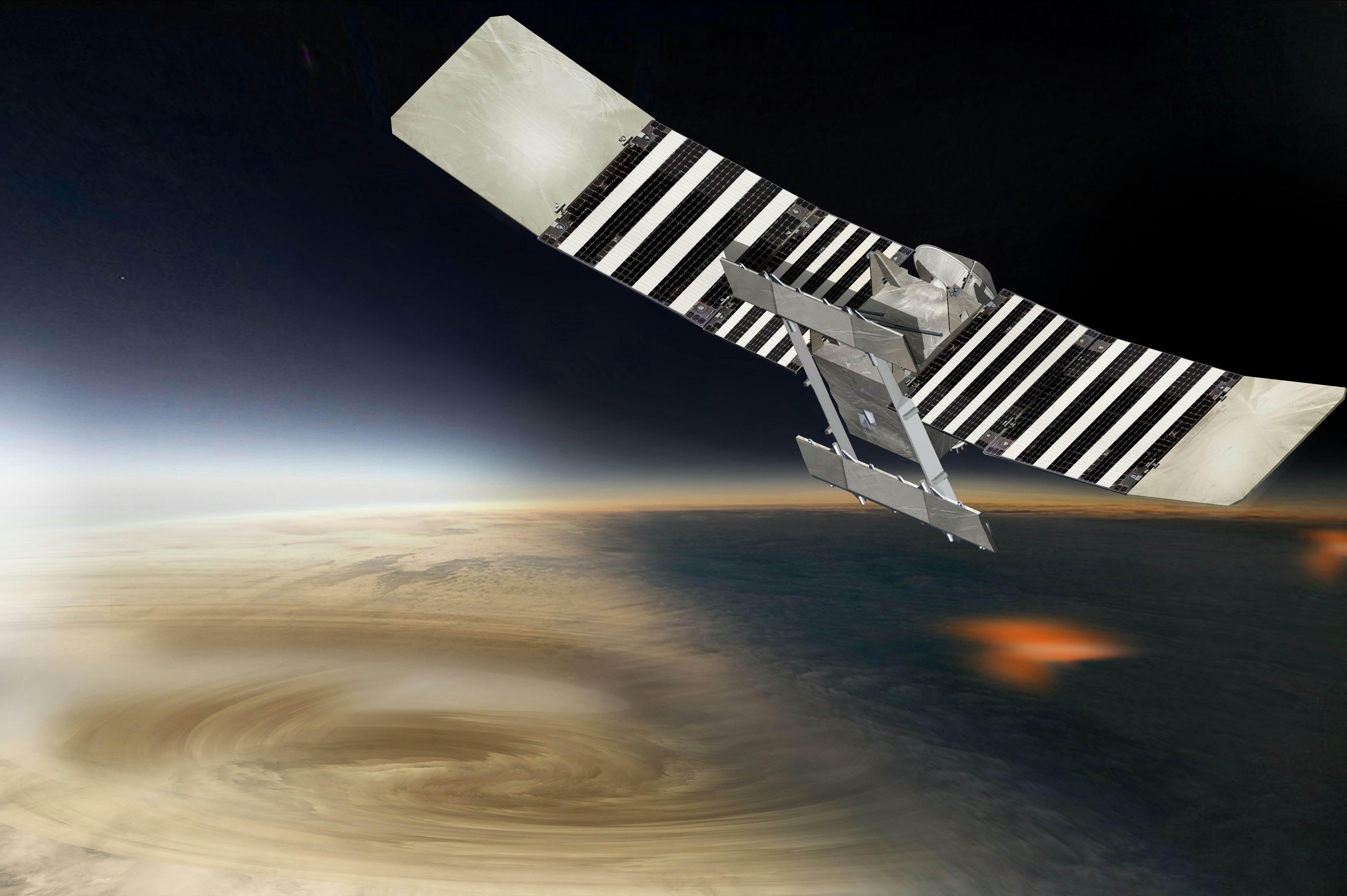
The highly-anticipated VERITAS mission to Venus was going to fly over its thick clouds to study the infernal world’s surface. The collaborative project would become NASA’s first return to this planetary neighbor in three decades. And on Wednesday, astronomers announced evidence from images that Venus had volcanic activity as recently as the 1990s, becoming the latest on a string of thrilling prospects about Earth’s twin.
But it was bittersweet news because just days before, the space agency released its budget request, and the new Venusian spacecraft got no funding.
Astronomers have publicly shared their disappointment that the VERITAS mission — short for Venus Emissivity, Radio Science, InSAR, Topography, and Spectroscopy — will now be delayed. The decision was likely made months ago, but the budget request came out later than planned. By accidental timing, it wound up coinciding with a major astronomical event called the Lunar and Planetary Science Conference (LPSC). Many attendees tweeted about the news using the hashtag #saveVERITAS and others were more deeply disheartened.
“This was an astonishing surprise,” VERITAS science team member Luciano Iess of the Sapienza University of Rome tells Inverse. Iess recalls being on a hike, and learning the initial news of NASA’s decision in November 2022. Iess says NASA’s explanation this week for the VERITAS delay, citing personnel issues at its Jet Propulsion Laboratory, is confusing. More importantly, he’s concerned about any effects this could have on NASA’s relationship with the Italian Space Agency, its VERITAS partner.
“This is the right time for VERITAS,” Iess says. “The recent discovery of volcanism on Venus in my view is a strong motivation to go ahead as soon as possible with VERITAS, because VERITAS is the mission that will see these surface changes and active surface processes on our twin planet.”
Space policy analysts study NASA’s budget requests to learn about the agency’s prerogatives. “When you look at where dollars go, because you can only spend a dollar once, dollars tell you what the actual priorities of an administration, of a Congress, or a nation are at the end of the day, and it helps cut through rhetoric… you can say as many words as you like, but dollars tell you the actual priorities,” Casey Dreier, chief of space policy at the non-profit The Planetary Society, tells Inverse. (Carl Sagan founded The Planetary Society in 1980 following NASA’s Viking missions to Mars.)
The VERITAS delay was apparent to Dreier when he looked at NASA’s budget request released on Monday. “It was in there, it just wasn’t highlighted,” he says. The budget doesn’t bear out a similar fate for DAVINCI+ quite yet, another Venus mission that was to be a companion mission to VERITAS. “DAVINCI is in the budget with a launch date of "no later" than 2030, though it says the exact schedule is TBD,” Dreier says.
The Planetary Society then published a response the following day. “Until this budget, the mission was on-schedule and on-budget; through no fault of its own, it now faces an indefinite delay, raising the project’s overall costs, setting back our efforts to understand Venus, and disrupting our international partners’ participation in the mission,” the statement says.
Inverse reached out to officials at the Jet Propulsion Laboratory, who reported that JPL does not comment on budgetary matters. Inverse has reached out to NASA headquarters and will update with its comments.
Iess and Dreier have seen missions lose funding and then get going again. So this isn’t the final chapter for VERITAS. But its delay was, nevertheless, quite the shock.







